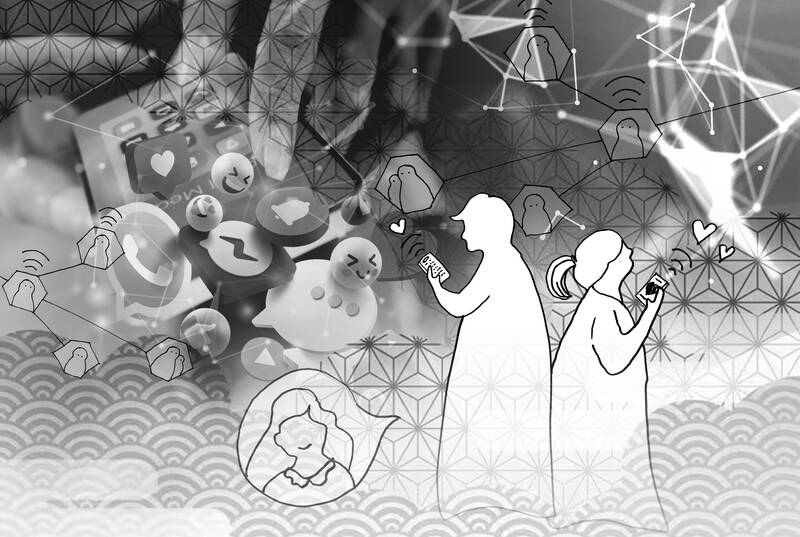The Tokyo government’s plan to launch its own dating app has attracted mockery online and praise from Elon Musk (which these days often only increases the ridicule).
The announcement, which coincided with the release of latest fertility figures for last year, which showed a record low, is intended to boost the number of marriages in the capital. In terms of fixing entrenched fertility trends, this idea might not be The One. But do not swipe left just yet.
The world has at last awakened to the notion that when it comes to the fertility problem, Japan is not an outlier, but a forerunner. However, its head start also makes it clear that there is precious little government policy or funding can do to reverse the underlying trend for fewer babies that is now becoming entrenched in almost every developed society. Official efforts seem best spent on the margins, helping those who want to get married or have children, but lack the means or opportunity.

Illustration: Tania Chou
That population can be significant. In Japan, marriages and childbirth are closely correlated; about two-thirds of women say being wedded is a pre-requisite to having children, compared with more than 80 percent in some European countries who said the opposite, according to an international survey by the Nippon Foundation. One likely factor for the fall in the fertility rate last year was the drop in marriages during the COVID-19 pandemic, as couples postponed plans to wed, or failed to meet at all.
The rates of unmarried Japanese have been rising across every age group. More than 90 percent of women aged 30 to 34 were married in 1980, versus 65 percent now. A Tokyo survey found that two-thirds of those who were not married wanted to wed one day; but nearly 70 percent of people were not making any particular effort to find a partner, such as using dating apps.
NO CONFLICT
Like other social woes, there is a role for governments to help fix this. Of course, Japan has plenty of dating apps already, from the likes of Pairs or With, which aim to help people find long-term relationships, to the more familiar foreign-owned services aimed at flings, such as Tinder.
Governments do not have the same conflict of interest as commercial dating apps, where a successful relationship removes you from the dating pool, eliminates you as a customer and forces companies to spend more on attracting new users to replace you. That is one reason the apps are losing steam, with the market cap of Tinder and Bumble owner Match Group Inc (which also owns the operator of Japan’s Pairs) down more than 80 percent from its peak.
And while many outside the country expressed surprise that among the requirements for the official app were proof of salary and family registers, this is far from unusual. Other apps, such as Tokyo Calendar Date (a spin-off from a popular magazine promoting high-end lifestyles) make such verification a unique selling proposition, to help avoid scammers and other time-wasters.
Tokyo’s app is far from the first government involvement in the dating scene — it is merely one for the digital age. For decades, local authorities across the nation have been involved in promoting marriage, from running introductions to holding dating events. Ishikawa Prefecture, some 300km northwest of Tokyo, is one such example and says that, to date, it has paired 1,266 couples through its marriage promotion department.
MATCHMAKER
In many ways, the government is taking the once-common role of matchmaker. In the prewar era, arranged marriages known as o-miai were how most couples paired off. A go-between, or nakoudo, often a relative, but sometimes just a neighborhood glad-hander, would review the backgrounds of eligible singles and make arrangements for meetups of likely matches and their families.
The practice has been steadily falling out of popularity since the end of World War II, replaced by so-called marriages of love, where the partners choose each other. However, that system is under threat, too: Workplaces were once the most common venues to meet potential future partners, but as elsewhere, a new era of social norms post-MeToo has made the office increasingly off-limits.
Can the government find a niche here? Authorities already operate side-by-side with the private sector in providing many public goods, with the Tokyo government both competing and complementing companies in providing bus and subway services or private and public education. From preschool to the grave, the government is deeply involved in your life. Should it not also be part of perhaps your biggest decision? Besides, the ¥300 million (US$1.9 million) Tokyo would spend on its marriage support division this year, which includes the app, is but a fraction of its US$3.6 billion total support for childbirth and child-rearing across the capital of 14 million people.
Whatever the outcome, it is worth watching as awareness grows that falling fertility is not limited to East Asian nations, and cannot simply be legislated away. Skepticism around Tokyo’s latest attempt to make more couples might be justified — and let us face it, it probably would not work out. Then again, most relationships do not — but they are still worth trying.
Gearoid Reidy is a Bloomberg Opinion columnist covering Japan and the Koreas. He previously led the breaking news team in North Asia, and was the Tokyo deputy bureau chief. This column does not necessarily reflect the opinion of the editorial board or Bloomberg LP and its owners.

Labubu, an elf-like plush toy with pointy ears and nine serrated teeth, has become a global sensation, worn by celebrities including Rihanna and Dua Lipa. These dolls are sold out in stores from Singapore to London; a human-sized version recently fetched a whopping US$150,000 at an auction in Beijing. With all the social media buzz, it is worth asking if we are witnessing the rise of a new-age collectible, or whether Labubu is a mere fad destined to fade. Investors certainly want to know. Pop Mart International Group Ltd, the Chinese manufacturer behind this trendy toy, has rallied 178 percent
My youngest son attends a university in Taipei. Throughout the past two years, whenever I have brought him his luggage or picked him up for the end of a semester or the start of a break, I have stayed at a hotel near his campus. In doing so, I have noticed a strange phenomenon: The hotel’s TV contained an unusual number of Chinese channels, filled with accents that would make a person feel as if they are in China. It is quite exhausting. A few days ago, while staying in the hotel, I found that of the 50 available TV channels,
There is no such thing as a “silicon shield.” This trope has gained traction in the world of Taiwanese news, likely with the best intentions. Anything that breaks the China-controlled narrative that Taiwan is doomed to be conquered is welcome, but after observing its rise in recent months, I now believe that the “silicon shield” is a myth — one that is ultimately working against Taiwan. The basic silicon shield idea is that the world, particularly the US, would rush to defend Taiwan against a Chinese invasion because they do not want Beijing to seize the nation’s vital and unique chip industry. However,

Life as we know it will probably not come to an end in Japan this weekend, but what if it does? That is the question consuming a disaster-prone country ahead of a widely spread prediction of disaster that one comic book suggests would occur tomorrow. The Future I Saw, a manga by Ryo Tatsuki about her purported ability to see the future in dreams, was first published in 1999. It would have faded into obscurity, but for the mention of a tsunami and the cover that read “Major disaster in March 2011.” Years later, when the most powerful earthquake ever